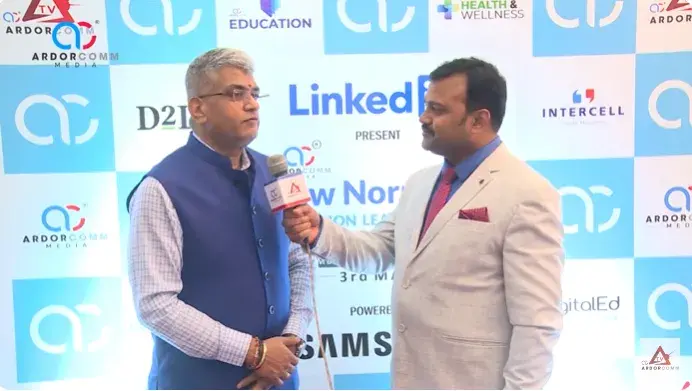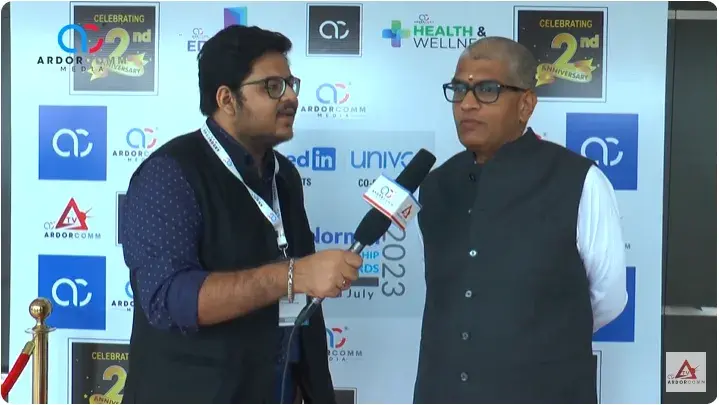Anantha Krishnan B, CEO- Operations, Kalorex Group, Ahmedabad shared their approach at Kalorex Group of Institutions
“The issue today is with the influx of AI and other technologies, identifying the skill set needed for a generation that will see the world 15 years later” said Anantha Krishnan B, CEO- Operations, Kalorex Group, Ahmedabad Could you please highlight some of the initiatives or significant projects of the Kalorex Group of Institutions? We, as an organization, have always been forward-looking. As a policy, we think 15 years ahead of our times. The issue today is with the influx of AI and other technologies, identifying the skill set needed for a generation that will see the world 15 years later. We are working on those lines. The initiative of the AI clone and Avtar Maya that we have created of Dr. Shroff is a step towards that same vision to get the best of skill sets to the children. The progress is ongoing. What are the steps of Kalorex Group towards sustainable education? A couple of things I’d like to mention from today’s session. The morning session on NEP was fantastic. NEP, as a document, is very detailed, but the challenge is implementation. We, as a company, have created ways to implement NEP and converted those practices into a booklet, which we distributed today. This booklet is the outcome of dedicated efforts by about 70-80 teachers across the city who brainstormed and came up with easy implementation strategies adaptable by any school. By following these practices, we can expect a better future in the next 10 years. What motivates a teacher in your institution, and how do they cope with diverse students in a classroom? A teacher must always be forward-looking and a source of information and knowledge. In the age of AI, information is readily available on screens. If a teacher teaches something in the classroom, a child can immediately verify it on a computer. The challenge is teaching students how to compete with humanoids and AI. If you compete with a robot, like in a game of chess or badminton, the robot is likely to win. We need to teach students resilience, value systems, and adaptations required to compete with AI and robots. That’s what we are working on. What are your takeaways from today’s events, and how do such forums help society at large? On paper, many policies and government initiatives come up, especially in the last 10 years with the current government. Initiatives like the AAR card program and UPI payments are examples of good governance practices that schools need to implement for the next generation. Schools play a significant role in translating these policies into practice. For example, I come from a deep south village where the river used to have water up to my neck, but now the water level is down to 1 foot. We, as humans, are responsible for this and for restoring the river. Sessions like these teach us how to implement policies at a ground level, which is crucial for the future. Your efforts in organizing such sessions are commendable. I plan to attend your upcoming sessions in Indore and Vishakapatnam. Any final thoughts or messages? Thank you for having me at this event. It was a pleasure to be here and support your initiatives. Keep up the good work, and I look forward to your future sessions. Thank you.


